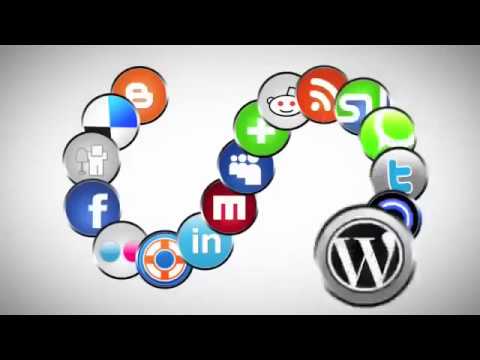
The Simple Telehealth Community of Practice is at the heart of Simple Shared Healthcare’s model. Supporting members to embed sustainable innovative practice is our primary objective by investing in organisations to support a continual increase in capability to ensure both patients, and the organisation benefit from evidence based implementations for the lowest possible cost. Through discussions with Community Members, a focussed session concentrating on the ability of social media to not only engage, but to share and recognise innovative clinical practice was arranged. Simple Shared Healthcare were thrilled to host this exciting learning opportunity.
Joan Pons Laplana kindly took the time to deliver a webinar called “The Power of Social Media” to our community members. Joan has been a nurse for over 20 years, and is now a clinical fellow at NHS Digital. Joan is passionate about empowering both staff and patients; he is a champion for using social media in healthcare, and wants to inspire others to embrace it. Joan has won a number of awards for his innovative approach to healthcare, including the Nursing Times Nurse Tweeter of Year 2014, and the BJN “Nurse of the Year” Award 2018.
After being introduced by Kylie, Joan started the webinar by discussing some of the issues around how the NHS shares and communicates with both staff and the public. Joan shared that within a busy NHS workplace, despite the associated issues of missed emails and inbox backlog, email still remains the main method of communication and sharing across organisations. Joan feels that many NHS Communications teams would benefit in engaging with frontline staff, and that even the best campaign can fail if it does not reach the intended audience.’
Why go social?
The use of social media has massively increased over the past decade; people connect to social media multiple times a day, and almost 60% of smartphone users don’t go an hour without checking their phones. For young people, social media plays an even greater role in their day to day lives. Joan then showed us a short video called “The Social Media Revolution 2017”, which shared further statistics about social media use worldwide, including:
- Facebook added over 2 million users in less than a year
- 80% of companies use social media for recruitment
- 50% of the UK’s mobile internet traffic is for Facebook
Social media has allowed people to connect with others on a global scale; we no longer work in silos, and we can organise our lives from the palm of our hands.
However, despite this development, the NHS has not yet kept pace with change, and Joan believes that this needs to change;
“ The question isn’t ‘Do we need to do social media’, it should be ‘How well are we going to do social media?’ ”
Joan went on to discuss how using social media has changed how he works and cares for people. He feels that it has opened a lot of doors for him, and has put him in contact with great projects and people. Social media has given Joan a platform to share his passion leading him to meet important individuals in the healthcare sector, speak at large rallies and conferences, and even appear on television. Joan feels that if it were not for the extended reach he has gained from an active social media presence, then he wouldn’t have been able to do any of this. Although social media has come about through developments in technology, Joan strongly believes that social media is about the people “behind the screen” and the connections and relationships they are able to make through sharing and networking with others.
Another great bit of advice from Joan is to make use of data analytics about your social media accounts. This allows you to see who you are reaching, what sort of posts are more viewed compared to others etc. This can help you to improve how you use social media for your campaigns; using social media to its full potential allows you to reach a much larger audience, especially if it goes viral!
Framing your projects
As Joan pointed out, successful campaigns and projects commonly create branding. For example, a hashtag will make any posts easily searchable, while logos provide an easily recognisable visual aid. Joan highly recommends framing any project like this to help it succeed. Joan also believes that you should try to make your campaign fun. Frontline NHS staff are very busy, and may often find themselves bombarded by information. However, if you make your campaign fun, then they are far more likely to engage with the project.
#FloMania
Joan created the hashtag #FloMania whilst working as the telehealth lead at Derbyshire Community Health Services. #FloMania continues to be used when sharing Flo news, and is used both nationally and internationally, helping Flo users discover, share and connect with other Flo users more easily.
“ Social Media is a very powerful tool, that if used correctly, has endless possibilities. Never underestimate the power of twitter. ”
Joan’s “10 Commandments for Social Media”
- Create an account in multiple platforms – many of them connect with each other to make sharing easy, and they are free!
- Read the Code of Conduct from your Professional body before posting.
- Brand your campaign. Logos and hashtags help to make your campaign more memorable and engaging, and make sure you know your audience.
- Add pictures or short videos to your content – when browsing social media people pay more attention to these kinds of post compared to just text.
- Tag people and organisations to improve the reach of your posts.
- Remember that social media is not just broadcasting – it’s a two-way system and you have to engage with people who contact you as a result of your posts.
- Remember to network and create links by following like minded people.
- Avoid conflicts and agree to disagree with people.
- Always make the journey fun.
- Maintain a positive attitude.
Listen to the webinar here
#Social media #FloMania #TotallyUnique

